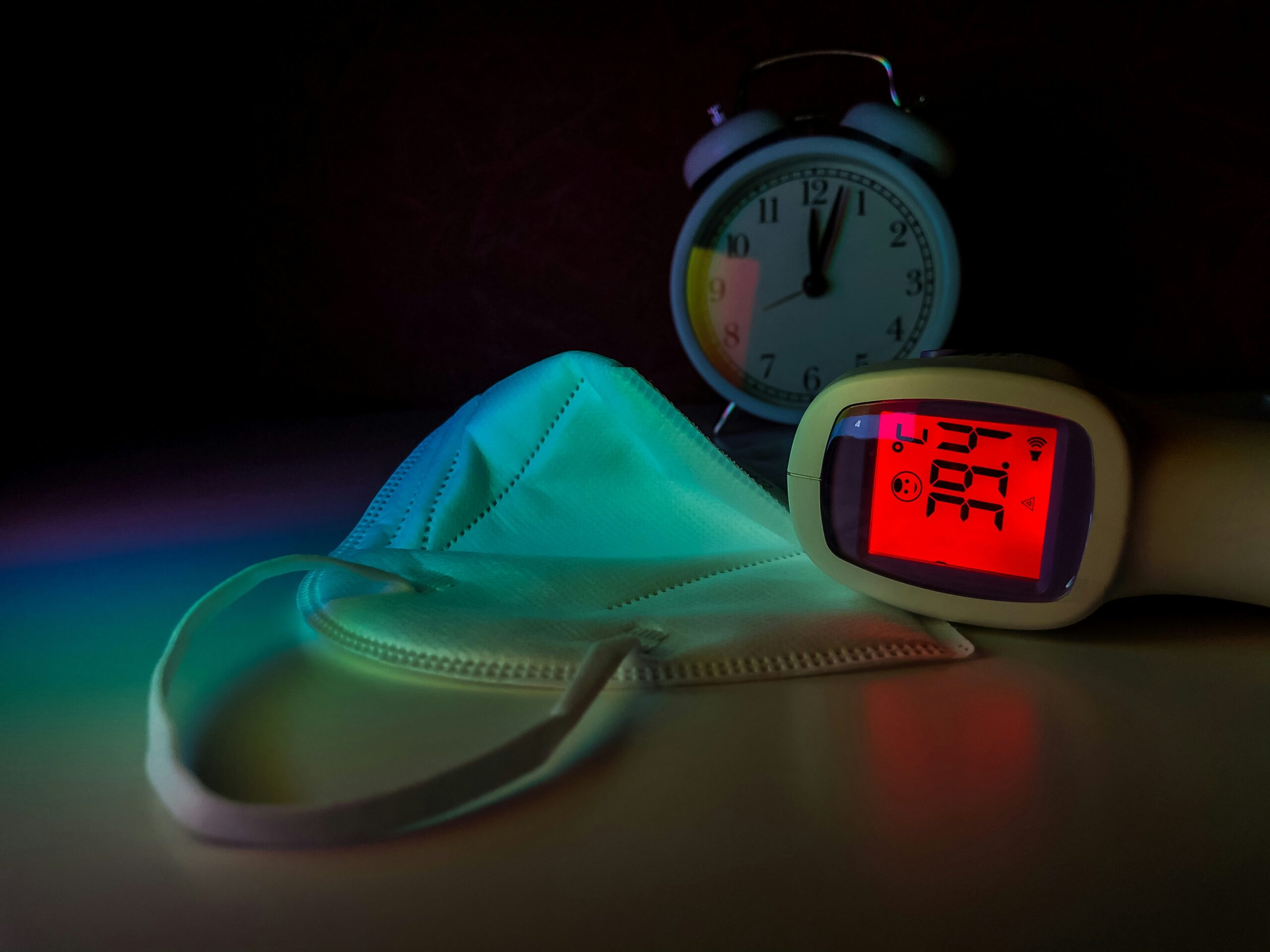Health Alert! 8 Shocking Hidden Causes of Chronic Fatigue (Not Just Poor Sleep)
Introduction
We all feel tired. A busy weekend with a long day at work, a restless night or a busy weekend can leave anyone drought. But what if the fatigue never occurs – even after eight hours of sleep, a balanced diet and a weekend closed? When fatigue becomes chronic, it’s not just about overwork. This is a red flag that sends your body and your health can worsen quietly.
Chronic fatigue affects millions of people around the world, but it is often dismissed as “just stress” or “to be old”. Truth? Continuous energy can indicate deeply, often health problems are ignored, many of which are completely recognizable.
In this article, for the eye, we open 7 shockingly hidden causes of chronic fatigue that go far beyond poor sleep. From hormonal imbalance to the deficiencies of hidden nutrients, you will learn what your body is trying to tell you – and what you can do about it.
Table of Contents
1. Iron deficiency anemia: quiet energy sie
One of the most common – but often accidental – is iron deficiency anemia due to chronic fatigue.To produce hemoglobin, iron is needed for protein in red blood cells that carry oxygen throughout the body. Without adequate iron, your tissues and organs do not get oxygen as they need to function, causing tireless fatigue.
Women of reproductive age are particularly weak due to menstrual blood loss, but men and postmenopausal women do not have the immunity of whether their diet lacks of iron-rich foods or has gastrointestinal problems affecting the absorption. To see for:
Pale, Difficulty, Dizziness, Cold hands and feet, and Crispy nails.
Even mild iron deficiency (without fully developed anemia) can affect your energy. A simple blood test – to look for ferritin (stored iron), hemoglobin, and transferrin – Can reveal the truth. Treatment often includes dietary changes (red meat, spinach, lentils) and supplements, but always under medical supervision to avoid iron overload. Prioritizing your health does not mean brushing fatigue normally – especially when a single nutrient can be critical.
2. Thyroid Dysfunction: When Your Metabolism Slows Down
Your thyroid gland, a small butterfly-shaped organ in the neck, is the main regulator of metabolism. When it underperforms – a condition known as hypothyroidism – it slows your entire body. And fatigue is often the first and most frequent symptom.
Hashimoto’s thyroid, an autoimmune disorder, USA. The main reason for hypothyroidism, many people with it go years without diagnosis. Standard blood tests sometimes remember microim balance, especially if only TSH (thyroid-stimulating hormone) is checked.
Other signs of an underactive thyroid:
Disadvantages: Dry skin and hair, constipation, brain fog, and Sensitivity to cold.
Good news? When diagnosed, hypothyroidism is heavily treated with medications such as levothyroxin. But optimal health requires only more than the drug – it requires a holistic approach, including the harness, zinc and iodine support (when correct), stress reduction and regular monitoring.Do not assume that fatigue is “just part of life.” Get a full thyroid panel – TSH, free T3, free T4 and thyroid antibody – to control it.
3. Vitamin B12 Deficiency: The Brain and Energy Drain
Vitamin B12 is important for nerve function, DNA synthesis and red blood cell formation. A deficiency does not only cause fatigue – it can mimic the symptoms of depression, dementia, and even multiple sclerosis.The highest risk includes:
Vegetarians and vegetarians (B12 are found mainly in animal products)
Old adult (stomach acid decreases with age, reducing absorption)
People on long-term acid-lowering medications (eg, PPI).
Large symptoms:
Fatigue and weakness, Numbness or tingling, Memory problems.Mood change, Equilibrium issues. Because B12 deficiency develops gradually, the symptoms are often wrong for aging or stress. But again, untreated, it can cause permanent nerve damage. Blood tests can detect low levels, and from oral supplements to injections, depending on the seriousness.Your health depends on identifying that fatigue is not always about sleep – it may be your friends crying for B12.
4. Adrenal Fatigue (HPA Axis Dysregulation): Burnout at the Hormonal Level
While “adrenal fatigue” is a controversial concept in traditional therapy, the underlying concept-hypotalamic pituitary-inverted (HPA) is the deformity of the axis real.Chronic stress, whether emotional, physical or environmental, can overwork the adrenal glands, causing the levels of cortisol to be unbalanced.
Cortisol, the primary stress hormone, follows a natural rhythm: high in the morning to wake you up, and to help you sleep less at night. When this rhythm is interrupted, you may be tired in the morning, but wired at night – a classic signal about HPA patch. General Trigger:
Long-term voltage stress, Trauma, More training, Bad sleep hygiene, Imbalance in blood sugar. Symptoms include:
Noon accidents, Difficulty waking up, Cramped for salt or sugar food, Flexibility for reduced stress. Supporting adrenal health only involves being more comfortable.This requires stress management (meditation, breath), balanced nutrition, favorable herbs (such as Ashwagandha and Rhodiola) and sometimes targeting supplements. Salivary or urine cortisol tests can help to map the rhythm and guide recovery.
5. Sleep Apnea: The Invisible Sleep Disorder
You can log in for eight hours a night – but if you feel you have hit a truck, sleep apnea can be a hidden villain. This condition causes repetition in the breath during sleep, depriving the brain and body of oxygen, and interrupting deep, restructured sleep cycles.
Many people with sleep apnea do not feel that they have this – especially if they sleep alone. Snoring vigorously, gasping after air at night, and excessive day sleep is red flags.danger:
Overweight, Large circumference of the neck, male gender, Family history,Use of alcohol before bedtime.
Untreated sleep apnea does not only cause fatigue – it increases the risk of heart disease, stroke and diabetes. A sleep can confirm the diagnosis of diagnosis (polysomnography). Treatment options include lifestyle changes such as CPAP machines, oral equipment or weight loss.Your health is gasping really to breathe at night – not ignore the signals.
6. Blood Sugar Imbalances: The Energy Roller Coaster
Do you crash after meals? Do you feel unstable, irritable or have ailments after the food? You can be on blood glucose rolls and valleys – and it destroys your energy.When eating foods with high carbohydrates or sugary, your blood sugar spikes induce a deprived of insulin. Later, it drops quickly – known as reactive hypoglycaemia – can make you feel dry, worried, and again hungry.Over time, frequent spikes and crashes of insulin resistance, a precursor to type 2 diabetes, and an important contributor to chronic fatigue.Signs of problems with blood sugar:
Energy crashes 1-3 hours after eating, Intense creeps for sweets, Difficulty concentrating, Mood, Frequent urination or thirst.
OK? Be aware of stable blood sugar health:
Balanced food (protein + healthy fat + fiber),Refined carbohydrates and sugary drinks,
By eating plain little food,Strength training and go after meals.
Simple changes can stabilize your energy and protect your long -term health.
7. Chronic Inflammation and Autoimmune Conditions
Fatigue is a hallmark of many autoimmune diseases, including lupus, rheumatoid arthritis, multiple sclerosis and Hashimoto’s. What do they have together? Chronic inflammation.
Inflammation is the natural protection of your body against damage and infection. But when it becomes systemic and frequent, it creates a constant drain for your energy reserves. Your immune system is essentially in overdrive, uses great resources – very little for daily tasks.Other signs of chronic inflammation:
Joint pain or hardness, brain fog, Indigestion, Skin rash, repeated infection.
Tests for inflammatory markers such as CRP (C-reactive protein) and ESR (erythrocyte sedimentation) can help identify underlying problems. Addressing the causes – such as intestinal health, food sensitivity (eg, gluten, dairy), chronic infection or environmental toxins – is important for restoring energy. An anti-inflammatory diet (omega-3s, colored vegetables and rich in antioxidants), stress reduction, and quality sleep can dramatically improve your health and vitality.
8. What You Can Do Today: A 5-Step Action Plan
Do not suffer in silence. If you are struggling with unexplained fatigue, now take these steps:
survey.Ask your doctor:
Full Blood Count (CBC),Iron and ferritin,Vitamin B12 and folate, Thyroid Panel (TSH, Free T3, Free T4, Antibody),Blood sugar and HbA1c,CRP or ESR for inflammation.
Track your symptoms:Keep a magazine with energy level, sleep, diet and mood for 2 weeks. The pattern will help your doctor diagnose.Optimize your diet:Be aware of whole, impossible foods.Protein, healthy fat, complex carbohydrates and many vegetables prioritize.
Deal with stress: Practice mindfulness, yoga or deep breathing daily.Even 5 minutes can reset your nervous system.Improve the quality of sleep; Go to bed and get up every day at the same time.Avoid screen 1 hour before bedtime. Keep your bedroom cool and dark.
Your fatigue is a message – not life penalty
Chronic fatigue is not something you just want to “push.” This is a sign – a high, essential message from your body that something is closed. Whether it is nutritional deficiency, hormonal imbalance or hidden disease, the cause is often treated.
Your health is not just the absence of the disease – it is lively energy, mental clarity and the ability to live completely. Do not ignore the whisper until you scream.
If you are tired for months – or years – it’s time to dig deep. Talk to a functional medical businessman, endocrinologist or integrated health specialist who hears and examines.Because you deserve more than existence. You deserve to be prosperous.
1. What are common hidden causes of chronic fatigue besides lack of sleep?
Hidden causes include iron deficiency (anemia), vitamin B12 deficiency, thyroid disorders (like hypothyroidism), chronic stress, and underlying conditions such as sleep apnea or diabetes.
2. Can diet affect chronic fatigue?
Yes. Poor nutrition, low protein, excess sugar, and dehydration can all contribute to low energy levels. Eating balanced meals with whole grains, lean proteins, and veggies helps stabilize energy.
3. When should I see a doctor for constant tiredness?
If fatigue lasts more than 2 weeks, doesn’t improve with rest, or is accompanied by symptoms like weight changes, depression, or brain fog, consult a healthcare provider to rule out medical causes.










